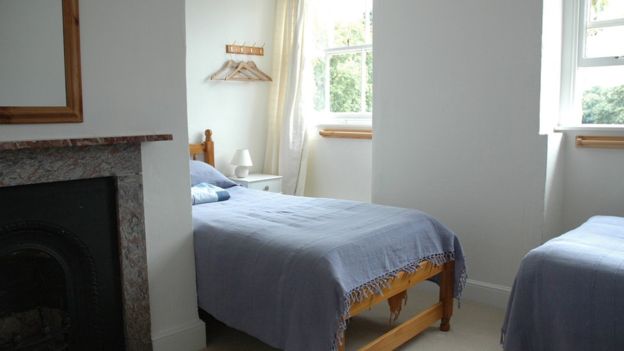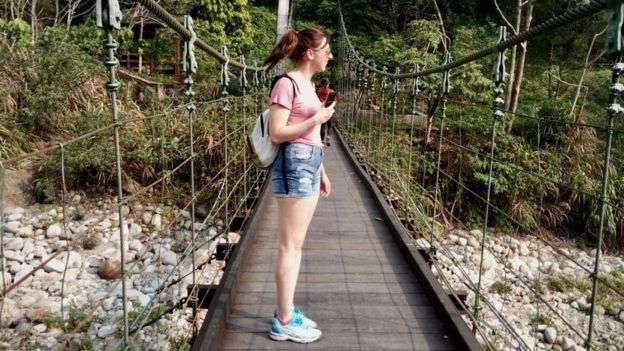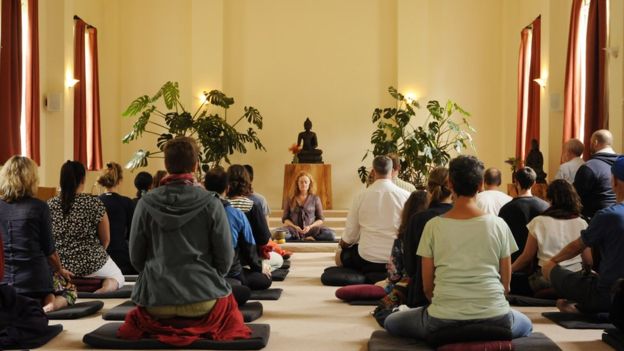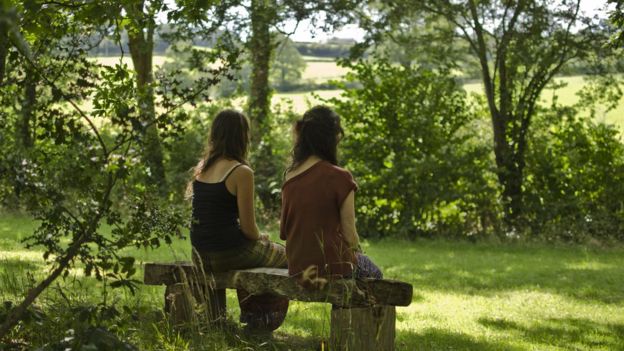A few years ago, Gemma Needham was stuck in a job she didn’t love, while struggling with stress and anxiety.
Then a friend recommended a book on meditation.
“I was doing my job for the money and had various relationships which weren’t great,” she tells Radio 1 Newsbeat. “The book gave me perspective, I felt so much calmer.”
The 26-year-old started meditating at home in Nottinghamshire, before deciding she wanted to take things up a level.
She looked online for silent retreats – holidays where you meditate and don’t speak to anyone, sometimes for several days at a time. Then, she booked a three-day visit to a retreat near Exeter, not knowing what to expect.
“It was tough at first but absolutely life-changing.”

“I was the youngest there and I was sharing a room with five strangers.
But, she says, at least there was no need to make small talk with strangers.
“That would have been much more awkward.”
Over the past three years, Gemma has done 10 silent retreats – some for up to 12 days long.
“I was definitely addicted – one year I did five retreats. When you come out, it’s like the world is a different place.”

Since she started attending retreats, Gemma has turned her life around. She’s quit her job, deleted Facebook, started learning the piano and begun a new career in healthcare.
‘Everything in my life has changed’
But it wasn’t an immediate transformation. At first, she found meditating for long periods a slog.
“An hour’s meditation in a hall with 100 people is different from 20 minutes alone at home. Thoughts and feelings you’re unaware of can come up, and when you’re with that many people, you feel like you can’t just get up and leave.”
It wasn’t until her fifth retreat that she had her “lightbulb moment”.
“I woke up in the middle of the night, everybody was asleep, it was pitch black and something in my mind clicked.”
Gemma says it made her see difficult situations in a new light.
“I realised that if something seems stressful, the way you see it is not the only way of looking at it.”

She quit her office job and joined the ambulance service, which she never thought would be possible.
“Before I started meditating, I had a bad needle phobia. When having an injection, I would need to be pinned down by four people – it was awful.”
“I’d always wanted to be a doctor and I got the A-Levels but changed my mind two weeks before the university application date.”
But now, her phobia has disappeared and she’s working in nursing.
“Everything just affects me less.”
At first, Gemma’s family were surprised that she was choosing to spend her free time this way.

“They were like, ‘you’re a 24-year-old going on silent retreats with old people, don’t you want to do more interesting things?'”
But now, she says they can see the benefits of her unusual holiday choice.
“I have more patience – instead of just reacting and getting angry or upset with people – I can take a step back.”
What actually happens on a silent retreat?
Silent retreats have a long history in many religions including Buddhism, Hinduism and Christianity.
They can be done alone or, like Gemma, in a group.
Typically, there are no phones, reading or TV, and you are encouraged to not write.
“Each day starts at about 6am but there are no clocks so you’re woken up by someone ringing a bell,” Gemma says.

“Then you go into the meditation hall for about an hour, and after that is breakfast.
“Everyone is sat around eating in silence, but simple things like trying to manoeuvre past people without saying ‘excuse me’ can be tricky.
“If you bump into someone, you automatically say ‘sorry’ then you have to apologise for speaking and everyone laughs.”
The rest of the day is spent doing sitting and walking meditation, broken up by meal times.
“Days usually end around 9pm. People tend to just go to bed because you’re completely knackered.”

And Gemma’s love of retreats shows no signs of lessening – she plans to keep attending at least one retreat a year.
“I’ve learnt the importance of relaxing more and looking after myself – we all just need to chill out.”
Source: Jim Farthing




















































